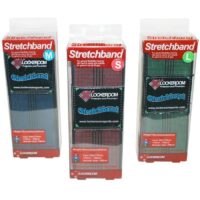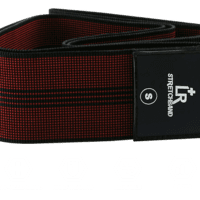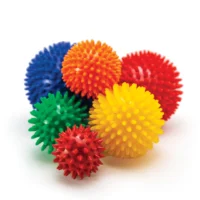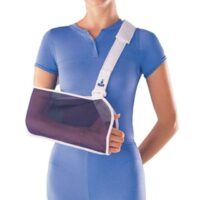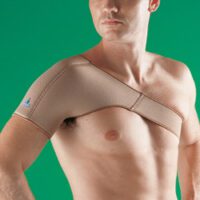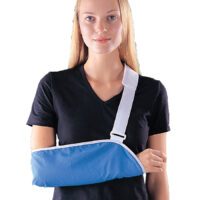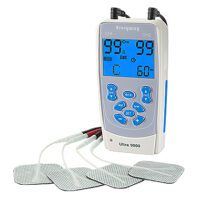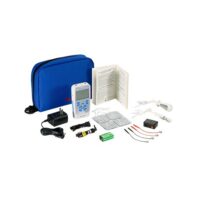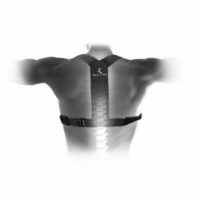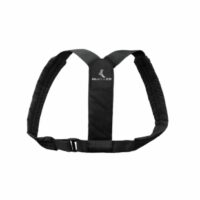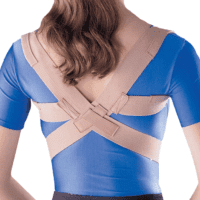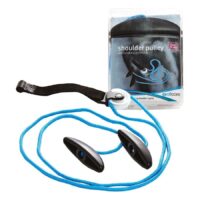Biceps Tendinopathy
Article by John Miller


Biceps Tendinopathy
What is a Biceps Tendinopathy?
Biceps tendinopathy encompasses various biceps injuries, such as:
- Biceps tendonitis (inflamed tendon)
- Biceps tendinosis (non-inflamed degenerative tendon)
- Biceps tenosynovitis (inflamed tendon sheath)
- Ruptured biceps tendon (due to degeneration or tear)
While many traditionally referred to these injuries as biceps tendonitis, today’s physiotherapists and doctors more commonly use the term biceps tendinopathy.
Locating the Biceps Tendon
Knowing the anatomy of the biceps muscle helps in understanding biceps tendinopathy. The biceps brachii consists of two parts: the short and long heads. The long head often shows symptoms. This long head runs over the humerus head (the ball joint) and connects at the top of the shoulder socket. It plays a crucial role in stabilising the shoulder joint. The biceps tendon passes through the bicipital groove at the shoulder’s front, where inflammation, primarily due to friction, frequently happens. If inflammation arises, it results in biceps tendonitis or tendinopathy.
Causes of Biceps Tendinopathy
Biceps tendinopathy rarely occurs on its own. It’s prevalent in sports like swimming, gymnastics, and certain contact sports. Factors such as overuse, tendon impingement, shoulder joint instability, or trauma can lead to its development. It often pairs with other shoulder issues, such as rotator cuff tears and shoulder instability. People in jobs demanding overhead shoulder tasks or heavy lifting face higher risks.
Identifying Biceps Tendinopathy Symptoms

Those suffering from bicep tendonitis and tendinopathy often experience:
- Anterior shoulder pain, sometimes extending to the elbow.
- Pain during overhead activities, particularly when combining abduction and external rotation.
- Increased pain with shoulder flexion, forearm supination, or elbow flexion.
- Some report muscle weakness or a snapping sensation during shoulder movements.
- Rest and ice typically relieve the symptoms.
Diagnosing Biceps Tendinopathy
Based on your symptoms and history, a physiotherapist or doctor might identify biceps tendinopathy. Ultrasonography and MRI are the top diagnostic tools. For detailed diagnostic guidance on your shoulder issue, consult a reputable shoulder healthcare expert.
Treatment Options for Bicep Tendinopathy
The type of tendinopathy dictates the treatment approach. It’s essential to pinpoint and address the cause of your tendinopathy.
For inflammatory conditions like tendonitis, non-steroidal anti-inflammatory medications or cortisone injections might help, along with ice application. On the other hand, tendinosis, being non-inflammatory, might not benefit from these treatments. Instead, specific tendon strengthening exercises, as advised by a physiotherapist, prove effective.
For a ruptured biceps tendon, especially recent ones, you might need a referral to an Orthopaedic Surgeon. However, in middle and older age these tendon are rarely repaired.
Managing Pain
In the initial stages, lifting your arm or sleeping might be uncomfortable. The primary goal is active rest, meaning refraining from activities that trigger pain. Your physiotherapist can guide you on the best resting positions or provide special taping for pain relief. Using ice can also help reduce pain and swelling.
Educating Patients and Correcting Techniques
Understanding the cause of your biceps tendinopathy is vital. Your physiotherapist can shed light on activities and postures that might worsen your condition and might suggest adjustments to your technique or workload.
Enhancing Joint Stability and Strength
Addressing joint stability and function is essential. Your physiotherapist can guide you through exercises that improve stability and strength, particularly if joint instability is the primary cause.
Considering Neck and Upper Back Posture
Your neck and upper back play a role in shoulder posture and control. Sometimes, stiffness or pain from inflamed neck joints can impact shoulder function. Your physiotherapist can advise on treating neck and upper back issues.
Restoring Normal Function
Your rehabilitation will depend on your shoulder’s specific needs. If your injury comes from a sport, high-speed activities or repetitive motions might be the culprits. Your physiotherapist can guide you through exercises to prevent re-injury and enhance performance.
Biceps Tendinopathy Prognosis
Most bicipital tendinopathies respond well to rehabilitation. Though ruptured tendons might not always need surgery, they typically respond favourably to a well-guided physiotherapy program. The recovery time can vary, depending on the associated conditions.
Returning to Sport or Work
A tailored exercise regimen, considering your sport or job, is crucial for a safe return. Your physiotherapist can work with you, setting goals and schedules, ensuring a smooth transition back to your activities.
In Conclusion
Progressing through rehabilitation varies from person to person. Your physiotherapist will monitor each stage, ensuring a seamless shift between phases based on your assessment and improvement. Remember, thorough rehabilitation minimises the risk of future injuries. Stay patient, dedicated, and in close contact with your healthcare professional.
Stay safe and keep your shoulders healthy! If in doubt, please seek professional advice.
Related Articles
- Rotator Cuff Tendinopathy: Discusses various conditions related to the shoulder’s rotator cuff tendons.
- Shoulder Pain: Offers comprehensive insights into different shoulder conditions, including shoulder impingement and bursitis, which can be linked with biceps tendinopathy.
- Rotator Cuff Tear: Covers conditions like bicep tendinopathy and rotator cuff tears, providing a broader understanding of related shoulder issues.
- Effective Shoulder Impingement Treatment and Advice: Details the causes and treatment options for shoulder impingement, a condition that can accompany biceps tendinopathy.
- Rotator Cuff Exercises: Highlights exercises and therapies for shoulder rehabilitation, which can be beneficial for those with biceps tendinopathy.
- Rotator Cuff Injury: Discusses various shoulder-related injuries and conditions, including muscle strains and tendon conditions like tears and tendinopathy, which could be relevant for those suffering from biceps tendinopathy.
- What is Your Rotator Cuff?: An article that describe your rotator cuff and what it does.
Rochedale - Call 38410277
Book Online: RochedaleSalisbury - Call 32751044
Book Online: SalisburySandgate - Call 32691122
Book Online: SandgateArticle by John Miller
What are the Common Causes of Shoulder Pain?
Shoulder pain is a widespread issue that can significantly affect your daily activities. Whether it's due to an injury, overuse, or an underlying condition, identifying the root cause is crucial for effective treatment and recovery. This FAQ page aims to address the most common causes of shoulder pain and guide you towards the next steps for managing your symptoms.
Why Does Shoulder Pain Occur?
Shoulder pain can arise from various conditions and injuries, each affecting different parts of the shoulder joint and surrounding tissues. Understanding the cause of your shoulder pain is essential to finding the right treatment. The common causes include:
Rotator Cuff Issues
The rotator cuff stabilises your shoulder, but it’s prone to injury, especially with repetitive movements.
- Rotator Cuff Injury: Typically results from repetitive overhead activities, causing pain and weakness. Learn more about rotator cuff injuries.
- Rotator Cuff Tendinopathy: Involves inflammation or damage to the tendons, leading to reduced mobility. Explore rotator cuff tendinopathy.
- Rotator Cuff Tear: Often due to injury or age-related wear, resulting in severe pain and limited function. Understand rotator cuff tears.
Shoulder Impingement and Related Conditions
Shoulder impingement occurs when tendons are pinched, leading to pain during arm movements.
- Shoulder Impingement Syndrome: A condition where tendons are compressed, causing pain and limited mobility.
- Shoulder Bursitis: Inflammation of the bursa in the shoulder, leading to pain.
- Swimmer’s Shoulder: Common in swimmers, this overuse injury causes impingement symptoms.


How Does Shoulder Pain Develop?
Shoulder pain can develop gradually or suddenly, depending on the cause. Chronic conditions often lead to stiffness and limited movement, while acute injuries might cause immediate pain. Common conditions include:
Frozen Shoulder (Adhesive Capsulitis)
A condition causing stiffness and pain, often developing slowly.
- Adhesive Capsulitis / Frozen Shoulder: Gradual onset of stiffness and pain, often without a specific cause.
- Shoulder Arthritis: Degenerative joint disease leading to pain and stiffness.
Shoulder Instability
Instability in the shoulder can result in recurrent dislocations or subluxations, causing ongoing pain.
- Shoulder Dislocation: Occurs when the joint is forced out of position.
- Functional Shoulder Instability: Chronic instability leading to recurrent issues.
What Should You Do Next?
If you’re experiencing shoulder pain, the best course of action is to seek advice from a physiotherapist or doctor. They can provide a thorough assessment and develop a personalised treatment plan. This might include exercises, manual therapy, or even surgery if necessary.
Post-Operative Shoulder Rehabilitation
Recovery after shoulder surgery is crucial to regain full function.
- Subacromial Decompression: A procedure to relieve impingement symptoms.
- Rotator Cuff Repair: Surgical repair to address torn rotator cuff muscles.
- Post-Operative Shoulder Rehabilitation: Tailored exercises to aid recovery after surgery.
Read more: Post-op Shoulder Rehab
Conclusion
Shoulder pain doesn’t have to control your life. By identifying the underlying cause and seeking appropriate treatment, you can effectively manage your pain and regain your quality of life. Consulting a physiotherapist or doctor is the best way to start your journey towards recovery.
Rochedale - Call 38410277
Book Online: RochedaleSalisbury - Call 32751044
Book Online: SalisburySandgate - Call 32691122
Book Online: SandgateShoulder Pain FAQS
- Why does my shoulder hurt when I lift my arm?
Lifting your arm can pinch tendons or muscles, often due to shoulder impingement or rotator cuff issues. - How can I treat shoulder pain at home?
Rest, ice, and gentle stretching can help, but professional assessment is recommended for persistent pain. - What are the signs of a rotator cuff tear?
A rotator cuff tear typically causes pain, weakness, and difficulty lifting your arm above your head. - Where can I get treatment for shoulder pain?
Consult a physiotherapist for a tailored treatment plan that may include exercises, manual therapy, or surgery. - When should I see a doctor for shoulder pain?
See a doctor if you experience severe pain, sudden inability to move your shoulder, or if the pain persists despite rest. - What is the most common cause of shoulder pain?
Rotator cuff injuries are the most common cause, often resulting from repetitive overhead activities.
Related Articles
- Rotator Cuff Injury: Causes and Treatment
Explore the common causes and treatment options for rotator cuff injuries. - Shoulder Impingement Syndrome: Symptoms and Recovery
Learn about the symptoms and how to recover from shoulder impingement. - Frozen Shoulder: What You Need to Know
Understand the signs and treatments for frozen shoulder. - Shoulder Arthritis: Managing Pain and Stiffness
Discover ways to manage the pain and stiffness associated with shoulder arthritis. - Shoulder Dislocation: Treatment and Prevention
Learn how to treat and prevent shoulder dislocations. - Post-Operative Shoulder Rehabilitation
Find out what to expect during post-operative rehabilitation for shoulder surgery. - AC Joint Injury: Causes and Treatment
Understand the causes and treatment options for AC joint injuries. - Biceps Tendinopathy: Symptoms and Treatment
Learn about the symptoms and treatment of biceps tendinopathy. - Shoulder Bursitis: Causes and Treatment
Explore the causes and treatment options for shoulder bursitis. - Shoulder Pain: Causes, Treatments, and When to See a Doctor
Discusses various causes of shoulder pain and when you should consult a doctor. - Shoulder Pain: Diagnosis and Treatment
Offers an in-depth look at the diagnosis and treatment of shoulder pain. - Understanding Shoulder Pain and Its Treatments
Explains shoulder pain causes and treatment options, including when surgery is necessary.
Shoulder Pain FAQs
Your Comprehensive Guide to Understanding and Managing Shoulder Injuries
Welcome to the "Shoulder Pain FAQs" page, your go-to resource for understanding various aspects of shoulder pain, injuries, and how to manage them effectively. The shoulder is a complex joint that allows for a wide range of movements, but it is also susceptible to various injuries and conditions that can cause discomfort and limitations in daily activities.
In this comprehensive guide, we will explore the most common shoulder injuries, their causes, and how to identify and treat them. We'll also address frequently asked questions about specific shoulder conditions, providing you with valuable insights into your shoulder health.


When Should You Worry About Shoulder Pain?
Shoulder pain can be caused by numerous factors, ranging from minor strains to more severe injuries. Knowing when to seek medical attention is crucial to prevent further damage and facilitate timely recovery.
Common Shoulder Injuries
We'll swing into the most prevalent shoulder injuries, shedding light on their causes, symptoms, and appropriate treatment options.
More info: Common Shoulder Injuries
What Causes Shoulder Pain?
Understanding the root causes of shoulder pain is fundamental to addressing the issue effectively. We'll explore the various factors that can lead to shoulder discomfort and how to mitigate them.
More info: What Causes Shoulder Pain?
What is Your Scapulohumeral Rhythm?
The scapulohumeral rhythm plays a vital role in shoulder function and movement. We'll explain what it is and its significance in maintaining a healthy shoulder.
More info: What is Your Scapulohumeral Rhythm?
Rotator Cuff: An In-Depth Analysis
The rotator cuff is a critical group of muscles and tendons in the shoulder. We'll dive into its anatomy, functions, and common problems associated with it.
More info: Rotator Cuff: An In-Depth Analysis
How Can You Tell If You Have Torn Your Rotator Cuff?
Identifying a torn rotator cuff can be challenging, but we'll provide you with essential signs to look out for and when to seek professional evaluation.
More info: How Can You Tell If You Have Torn Your Rotator Cuff?
Can You Diagnose A Torn Rotator Cuff Without An MRI?
Find out about diagnostic methods for a torn rotator cuff, including whether an MRI is always necessary for accurate diagnosis.
More info: Can You Diagnose A Torn Rotator Cuff Without An MRI?
Can You Lift Your Arm With A Rotator Cuff Tear?
Discover the limitations and challenges you may face if you have a torn rotator cuff and how to manage arm movement during the healing process.
More info: Can You Lift Your Arm With A Rotator Cuff Tear?
Will Your Shoulder Blade Hurt With A Torn Rotator Cuff?
Learn about the possible relationship between a torn rotator cuff and shoulder blade pain, and what it indicates about your shoulder health.
More info: Will Your Shoulder Blade Hurt With A Torn Rotator Cuff?
Will A Cortisone Injection Help A Torn Rotator Cuff?
Cortisone injections are sometimes used for shoulder pain, but their effectiveness in treating a torn rotator cuff is a point of interest we'll explore.
More info: Will A Cortisone Injection Help A Torn Rotator Cuff?
How Can You Make Your Rotator Cuff Heal Faster?
We'll provide practical tips and strategies to aid in the healing process of a torn rotator cuff and restore shoulder function more rapidly.
More info: How Can You Make Your Rotator Cuff Heal Faster?
Shoulder Bursitis: Understanding the Condition
What is shoulder bursitis, and how does it differ from other shoulder injuries? Get insights into this inflammatory condition and how to manage it.
More info: Shoulder Bursitis: Understanding the Condition
Shoulder Impingement: Causes and Solutions
Understand the concept of the shoulder impingement zone and the factors contributing to rotator cuff impingement and bursitis.
More info: Shoulder Impingement: Causes and Solutions
Frozen Shoulder: Overcoming the Stiffness
Discover how to unfreeze a frozen shoulder and regain a full range of motion through effective therapeutic approaches.
More info: Frozen Shoulder: Overcoming the Stiffness
Shoulder Dislocation/Instability: Seeking Stability
Explore the causes of shoulder dislocation and instability, and the fastest ways to promote healing and prevent future occurrences.
More info: Shoulder Dislocation/Instability: Seeking Stability
Can You Fix Shoulder Instability?
Find out about treatment options to address shoulder instability and regain stability in the joint.
More info: Can You Fix Shoulder Instability?
AC Joint: Identifying and Managing Injuries
Learn how to recognise an injured AC joint and what steps to take for proper care and recovery.
More info: AC Joint: Identifying and Managing Injuries
Swimmers Shoulder: Causes and Remedies
If you're a swimmer or engage in repetitive overhead activities, understanding the causes of swimmer's shoulder and how to prevent it is essential.
More info: Swimmers Shoulder: Causes and Remedies
We hope this comprehensive guide will prove invaluable in your journey to understand and manage shoulder pain and injuries. However, it's essential to consult a healthcare professional for personalised advice and treatment based on your specific condition. Let's dive into the world of shoulder health together!






